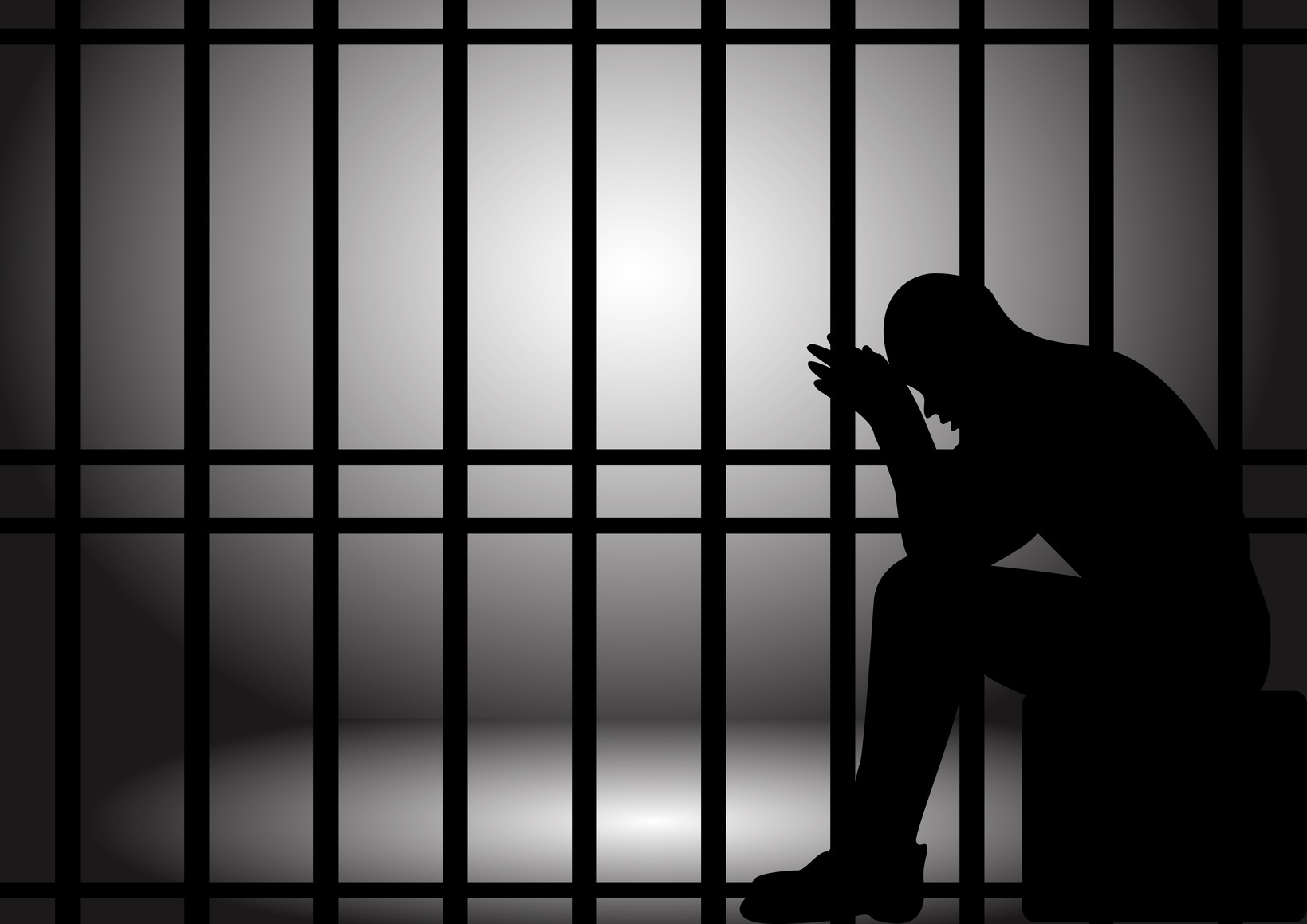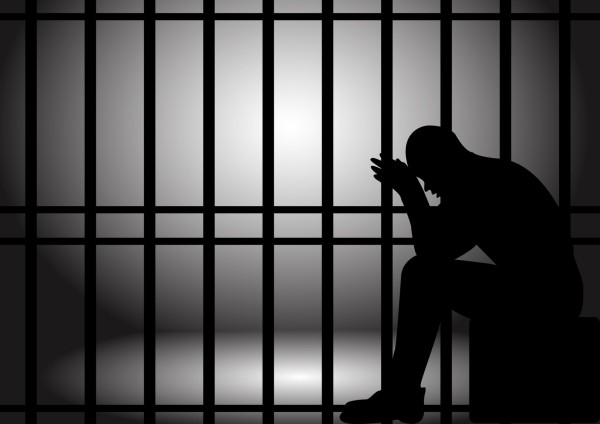(rolling stone)A little over a week ago, a 23-year-old construction worker in the Bronx named Jeff Rivera got in an argument with his wife, from whom he is separated. During the argument, he struck her door, pushing in the screen.
SIDEBAR
Bad Arrest A Bad Arrest, on Video »
Rivera was arrested and brought to court, where he was charged with criminal mischief, a misdemeanor, for pushing in the screen door. Though the sentence for being convicted of a misdemeanor offense like criminal mischief is hard to predict, the more immediate question for Rivera was whether or not he’d be jailed before trial.
Rivera had no reason to expect that he’d have to post bail to stay out of jail. Not only was the offense relatively minor, but he has no criminal history, is employed, and has a child and every reason in the world to show up for his trial. Judges are only supposed to set bail for two main reasons: if the defendant is a flight risk, or if he or she is a danger to the community.
“Bail is for guaranteeing that a person appears at trial. It’s not a punishment,” says Rivera’s lawyer, Alexandra Bonacarti of New York County Defender Services. “There’s absolutely no reason to set bail on someone like Jeff who has a job, a child, no criminal history, no history of missing a court date, and is not charged with a violent crime.”
But Rivera was unlucky. He went to court and stood before a judge who decided to set bail of $500 in his case.
Rivera didn’t have the money, which means he’d essentially committed two crimes, the second more serious than the first: he’d pushed in a screen door, and he didn’t have $500.
He was shocked to find that he was about to be carted off to the Manhattan Detention Complex, an infamous place also known as the Tombs. “I was shocked. There are real criminals in there, murderers and rapists,” he says. “You’ve got to be real careful about what you say in there. One word can set somebody off.”
Rivera spent the weekend before last in the Tombs, wondering how long he’d be in. As the hours ticked by, he started to worry about all kinds of things.
“Things happen in there,” he says. “I was worried, if I get in a fight, I might be charged with another crime. And I’d be in there longer.”
He survived the weekend. Then, last Monday night, some inmates got into an argument, one that spilled over into the next morning, when a real fight started. Rivera managed to stay out of the melee, but still got hurt later that day when his fingers got caught in a cell door.
Finally, last Wednesday, Rivera was released on his own recognizance after the city failed to get a supporting deposition from the wife. He never made bail. The case is still open, and he has a court date in July, though the DA has indicated to Bonacarti that he’s considering a dismissal. In total, Rivera spent over six days in the Tombs.
“I shouldn’t have been in there for six days,” he says today. “And really not for five days, or four, or three. It’s crazy.”
Rivera was lucky. His boss was understanding about what happened, so he’ll be back at work. And he appears not to have broken his hand.
But it could have been worse, and often is. Bonacarti says the problem of people being jailed for the crime of not having enough money is something public defenders like her see regularly. “It happens all the time,” she says. “People have no idea.”
In fact, her office caught another such case on the same day the Rivera incident was playing out.
In that instance, two parents were arrested after allegedly leaving children unattended in a shelter in Harlem. Police say the adults left the children to go get food at a store.
It’s a not insignificant accusation, but the charge — endangerment of the welfare of a child — is still only a misdemeanor. And the female defendant, who is nine months pregnant, had (and has) no criminal record. Neither did the male defendant.
The District Attorney’s office didn’t even ask for bail, and defense lawyers felt sure that the judge was going to release both parents pending trial.
Wrong. The judge asked for $500, for a woman weeks away from childbirth and broke enough to be living in a shelter.
“I mean, if she had $500, she wouldn’t be living in a shelter,” says Bonacarti.
Then Bonacarti added a refrain many defense lawyers repeat, when talking about bail for poor clients: “If you’re going to set bail at $500, you might as well make it a million. There’s no difference for this kind of person.”
The woman ended up being freed, after a higher court overturned the bail decision. It was just a lucky break that she wasn’t forced to give birth in jail over a misdemeanor.
The impact of episodes like this are hard to overstate. Many defendants lose jobs while they’re waiting for courts to decide their guilt or innocence. Others lose semesters of school study. In other cases, people can lose custody of children.
Still others end up pleading guilty to the charges, irrespective of guilt or innocence, because a) the sentences they face may be less severe than the time they could spend in jail awaiting trial, or b) pleading guilty ends up being the fastest way for defendants to get back to their kids, their jobs, school, etc.
Of course, pleading guilty carries its own consequences, among other things making pre-trial detention even more likely the next time around. The cycle is simultaneously vicious and absurd.
It’s not easy to get the public to care about bail. It’s particularly hard for people with little exposure to the criminal justice system to sympathize with those who get arrested, particularly for crimes of violence.
What people forget is that those who’ve merely been charged with crimes aren’t officially guilty yet. And not-yet-guilty people aren’t supposed to go to the hole, except under very narrowly defined sets of circumstances – for flight risks or for threats to the community. It’s certainly not supposed to be a punishment for not having $500.
But it works out differently in practice. In the era of “Broken Windows” and community policing, a crime-prevention strategy designed to generate vast numbers of minor arrests, more and more people are ending up in jail for what amounts to the crime of not having money.
The bail issue is only just starting to get some profile in the press, which of course has focused quite a lot on criminal justice and inequality issues in the last year.
For instance, The New York Times ran a depressing piece recently about an African-American man from Baltimore named Dominick Torrence. Torrence had bail set at $250,000 for disorderly conduct and rioting, after being arrested during the protests over the Freddie Gray killing in April.
That amount, $250,000, was “the same amount as two of the officers facing charges over Mr. Gray’s death,” as The Times put it. The paper added, in a parenthetical observation that one encounters a lot in stories of misdemeanor policing, that Torrence “spent a month in jail on charges that would later be dropped.”
Torrence’s lawyer, Todd Oppenheim, wrote a piece in the Baltimore City Paper that highlighted the unintended consequences of excessive bail. While Torrence was jailed, his girlfriend, Markeisha Brown, had to drop out of school because Torrence wasn’t around to help take care of the kids. Paying court costs also drained their finances to the point where the lights were shut off at home.
Now, Torrence had a record, including several charges of drug dealing, but no history of violence. And that was clearly a factor in the high bail that was set. But as Bonacarti’s case of the pregnant defendant shows, even a clean record isn’t enough to prevent judges from setting substantial bail.
In most states, multiple factors are considered before a bail recommendation is reached. These formulas for setting bail often favor people who have money over those who don’t.
In New York, for instance, anyone coming through the system has to be interviewed by the not-for-profit Criminal Justice Agency. The CJA asks a series of questions of each defendant and assigns a numerical score to each answer.
If you’ve missed a court appearance in previous years, you get dinged. If you don’t have a working telephone, a fixed New York address, or family showing up in court to see you, it also affects your score.
Bonacarti had a client recently who the DA argued should be jailed because he lived in a shelter. Prosecutors claimed living in a shelter was evidence the defendant didn’t have ties to the community.
“Living in a shelter doesn’t mean you don’t have ties to the community,” Bonacarti says. “It just shows a lack of housing.”
Politicians all over the country have spent plenty of time talking about the size of prison and jail populations. Even conservative politicians like Rand Paul have complained about the financial and social costs of throwing non-violent offenders in jail. And here in New York, Mayor Bill de Blasio has targeted the issue of overcrowded jails, recently releasing a plan to reduce court delays that cause people to spend inordinate periods of time behind bars awaiting trial.
But few politicians have specifically gone after the inequities of the bail system, which remains too obscure an issue for most voters.
In a few cities, there have been attempts to create bail funds, which would allow people who are in jail for purely financial reasons to stay out. Here in New York, there’s already a private charity in the Bronx that helps people get out of short jail sentences.
Meanwhile, New York City Council Speaker Melissa Mark-Viverito has proposed the creation of a $1.4 million public bail fund, which could help some of the 11,000 or so people in this city who annually fail to make bail in amounts ranging from $20 to $2,000.
Naturally, this proposal was met with hostility from the city tabloids, who rarely see a stiff punishment they don’t like. From the Daily News:
“Council Speaker Melissa Mark-Viverito wants to hand Get Out of Jail Free cards to criminal defendants — paid for not with Monopoly money, but with yours…
The Council would post [bail] payments in order to enable defendants to live in freedom while awaiting trial. Some chutzpah.”
There are plenty of truly dangerous people who get arrested, people most of us wouldn’t be sorry to see jailed. But the idea that it’s “chutzpah” to suggest that nobody should be in jail just for being poor is about as mean as modern America gets. And we can be pretty mean.
In the wake of Ferguson and Baltimore, there’s been a lot of attention focused on police violence, as a symbol of the unfairness baked into our justice system. But when it comes to civil rights issues and the Wealth Gap, bail is where the rubber meets the road. You can walk into any arraignment court, anytime, and see how bad it is. Is it really that hard to fix?
Share
Tweet
Share
Comment
Read more: http://www.rollingstone.com/politics/news/jailed-for-being-broke-20150623#ixzz3dxsX0WDq
Follow us: @rollingstone on Twitter | RollingStone on Facebook












Sign up on lukeunfiltered.com or to check out our store on thebestpoliticalshirts.com.